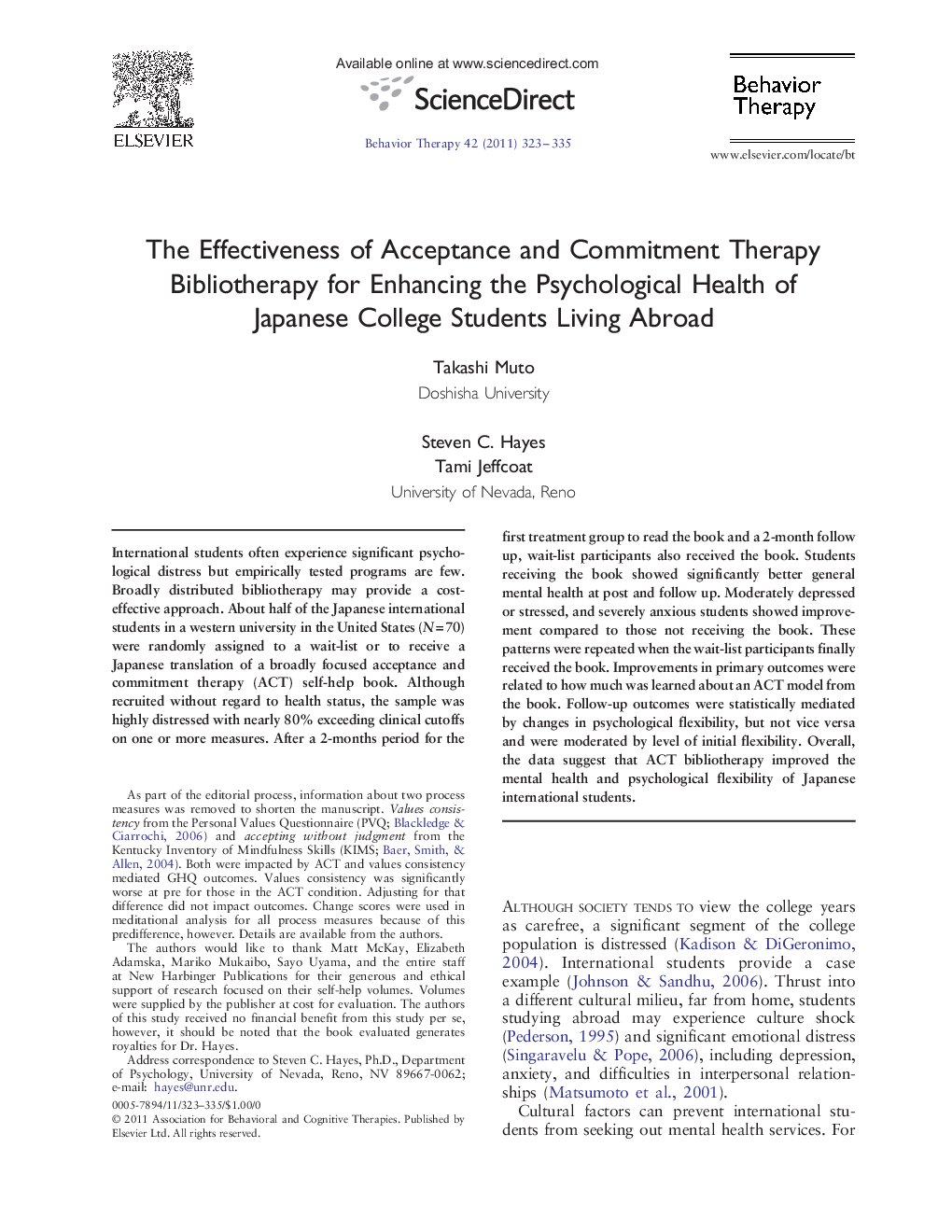| Article ID | Journal | Published Year | Pages | File Type |
|---|---|---|---|---|
| 901484 | Behavior Therapy | 2011 | 13 Pages |
International students often experience significant psychological distress but empirically tested programs are few. Broadly distributed bibliotherapy may provide a cost-effective approach. About half of the Japanese international students in a western university in the United States (N = 70) were randomly assigned to a wait-list or to receive a Japanese translation of a broadly focused acceptance and commitment therapy (ACT) self-help book. Although recruited without regard to health status, the sample was highly distressed with nearly 80% exceeding clinical cutoffs on one or more measures. After a 2-months period for the first treatment group to read the book and a 2-month follow up, wait-list participants also received the book. Students receiving the book showed significantly better general mental health at post and follow up. Moderately depressed or stressed, and severely anxious students showed improvement compared to those not receiving the book. These patterns were repeated when the wait-list participants finally received the book. Improvements in primary outcomes were related to how much was learned about an ACT model from the book. Follow-up outcomes were statistically mediated by changes in psychological flexibility, but not vice versa and were moderated by level of initial flexibility. Overall, the data suggest that ACT bibliotherapy improved the mental health and psychological flexibility of Japanese international students.
